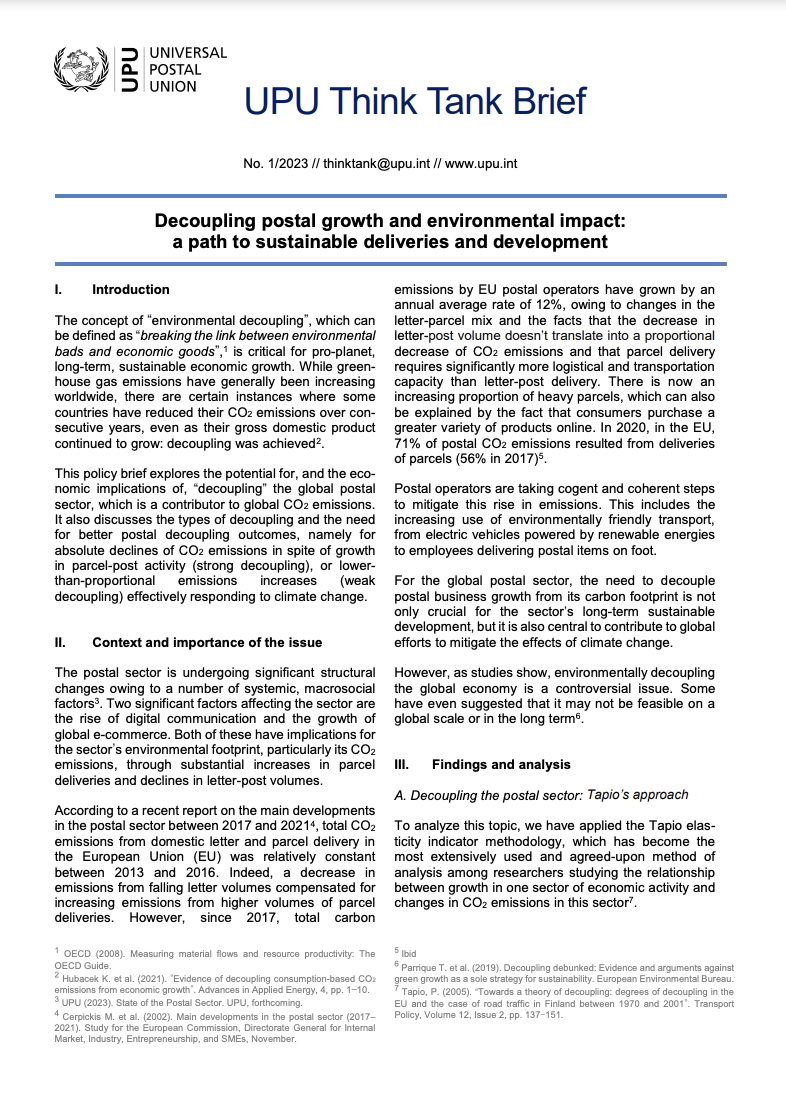The concept of “environmental decoupling”, which can be defined as “breaking the link between environmental bads and economic goods”, is critical for pro-planet, long-term, sustainable economic growth. While greenhouse gas emissions have generally been increasing worldwide, there are certain instances where some countries have reduced their CO2 emissions over consecutive years, even as their gross domestic product continued to grow: decoupling was achieved.
This policy brief explores the potential for, and the economic implications of, “decoupling” the global postal sector, which is a contributor to global CO2 emissions. It also discusses the types of decoupling and the need for better postal decoupling outcomes, namely for absolute declines of CO2 emissions in spite of growth in parcel-post activity (strong decoupling), or lower-than-proportional emissions increases (weak decoupling) effectively responding to climate change.
This policy brief explores the potential for, and the economic implications of, “decoupling” the global postal sector, which is a contributor to global CO2 emissions. It also discusses the types of decoupling and the need for better postal decoupling outcomes, namely for absolute declines of CO2 emissions in spite of growth in parcel-post activity (strong decoupling), or lower-than-proportional emissions increases (weak decoupling) effectively responding to climate change.
